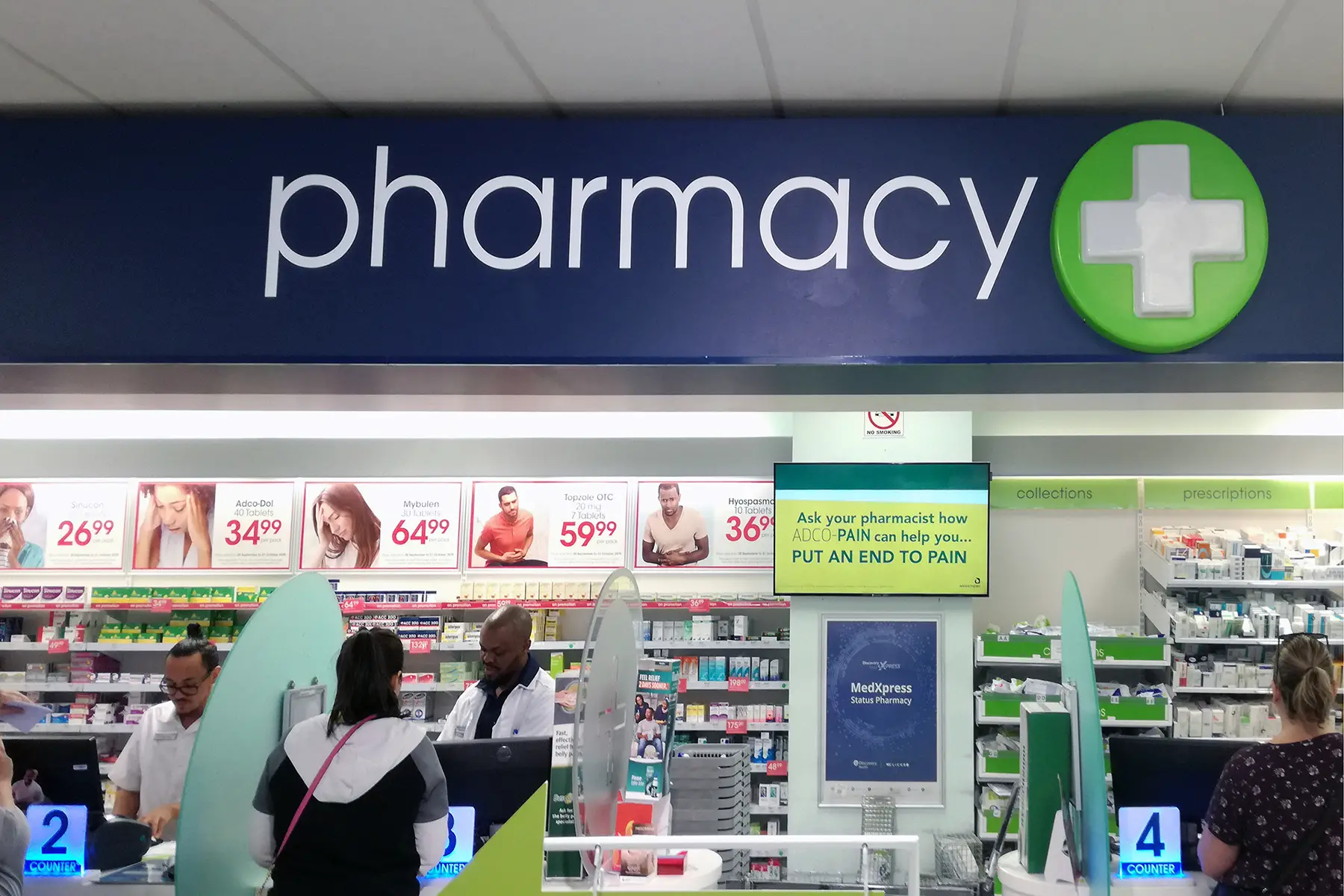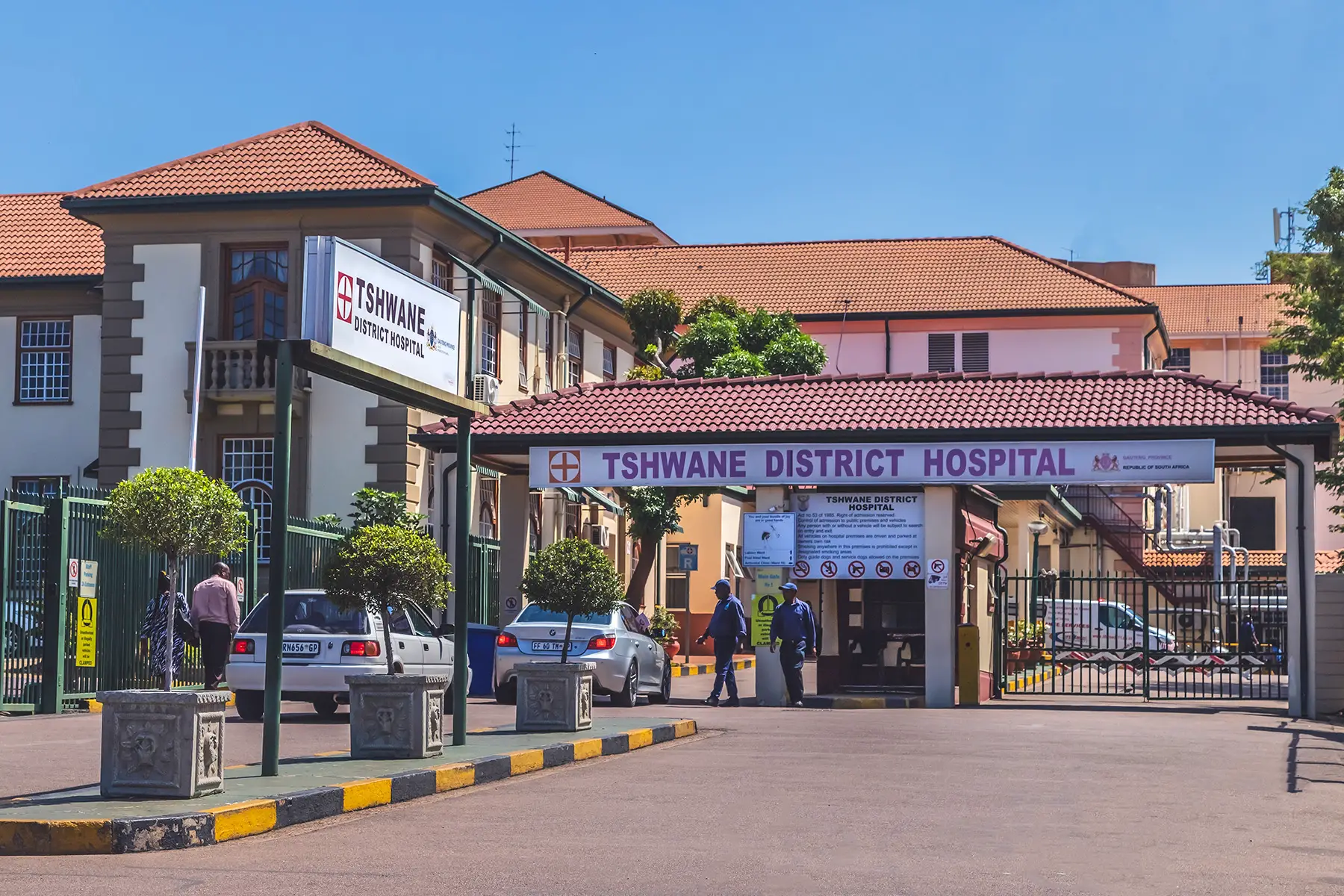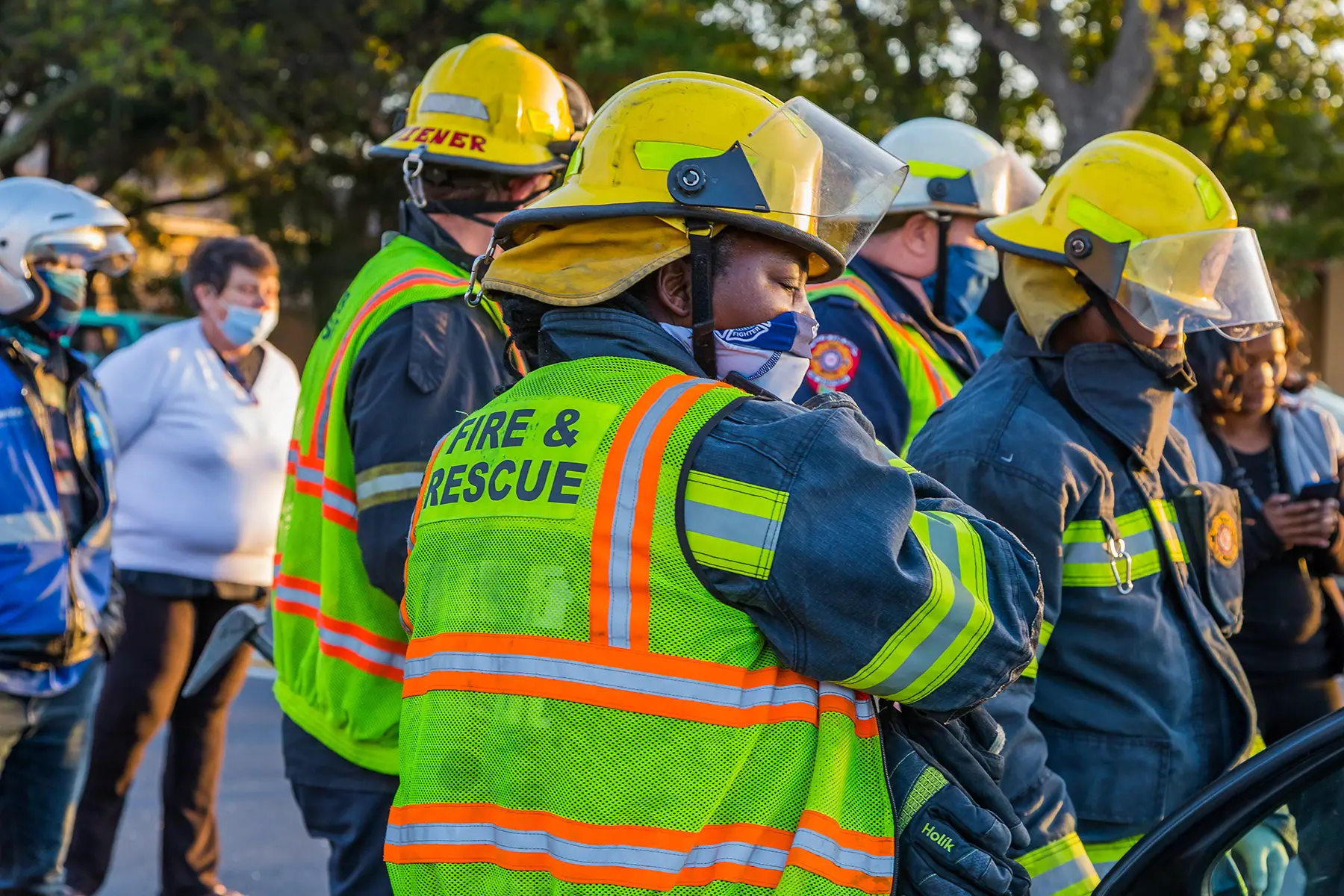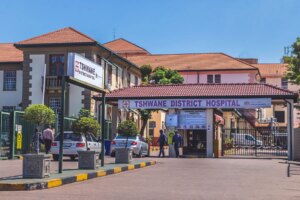Whether you’re popping into a clinic for a cold or navigating referrals for something more serious, seeing a doctor in South Africa can be surprisingly straightforward. It all depends on your location and what you’re willing to pay.
Keep reading for the following information:
- Overview of doctors in South Africa
- Who can see a doctor in South Africa?
- How to find a doctor near me in South Africa?
- How to see a doctor in South Africa: step-by-step
- How much do doctor visits cost in South Africa?
- Overview of South African doctors’ services
- How to complain about doctors in South Africa?
- Practical medical words in Zulu, Xhosa, and Afrikaans
- Useful resources
Cigna Global
Enjoy peace of mind while living in South Africa with Cigna Global’s long-term international health insurance plans (12+ months). Get tailored coverage, direct billing with many providers, complex case management, and global care on demand, with access to a network of 1.5+ million doctors, specialists, and therapists.
Overview of doctors in South Africa
South Africa has a very generous healthcare system that covers nearly 99% of all residents, including expats. The system consists of two parallel running sectors – public and private – which ensures that everyone can access a broad range of medical services, including doctor visits (Zulu: udokotela, Xhosa: ugqirha, Afrikaans: dokter) and emergency care.
According to the World Health Organization, South Africa has relatively many doctors compared to the rest of the region. In 2021, the country had 7.9 doctors per 1,000 residents (Southern Africa average: 3.5). Appallingly, however, around 60% of physicians work in the private sector (2020). The public system has an estimated 3.3 doctors per 10,000 patients.
Indeed, there is a large quality gap between public and private healthcare services in South Africa. Public health clinics are chronically underfunded and understaffed, and often cope with long waiting times and overcrowding. Meanwhile, the private sector boasts modern hospitals, shorter wait lists, and access to cutting-edge treatments, but only if your wallet can handle it.

All South African doctors must be registered with the Health Professions Council of South Africa (HPCSA), which is overseen by the National Department of Health (DOH).
Family doctors or GPs in South Africa
In South Africa’s public sector, nurse practitioners, medical officers, and community service doctors are the first point of contact for any health concerns. They work from public clinics or community health centers (Zulu: isikhungo sezempilo somphakathi, Xhosa: isikhungo sezempilo sasekuhlaleni, Afrikaans: gemeenskapsgesondheidsentrum), and you are free to choose whichever clinic you prefer.
If you can afford private healthcare, you can also see a private general practitioner (GP). These family doctors work in solo practices, small clinics, or group medical centres.
Standard opening hours for public clinics are generally from 08:00 to 16:00, Monday to Friday, though exact times vary. Most are closed on weekends and public holidays, though there are a number of community health centers (CHC) that operate 24/7.
Private clinics typically have more flexible opening hours. Most operate from 08:00 to 17:00, with some offering extended evening and weekend hours. A few are open 24/7.
Medical officers and family doctors in South Africa treat routine medical issues, perform health screenings, manage chronic diseases, and refer patients to specialists when necessary. They also handle your medical history and coordinate ongoing treatment plans.
Medical specialists in South Africa
If you need more specialized care, the next step is usually to see a medical specialist. South Africa has a wide range of specialists across both the public and private health sectors, covering fields like dermatology, cardiology, pediatrics, urology, and more.
Specialists typically work in hospitals or independent clinics. Public hospitals usually operate from 08:00 to 16:00, Monday to Friday. Some may open on Saturday mornings, but hours vary by location. Private hospitals and clinics often have longer and more flexible hours, including evenings and weekends.

You’ll need a referral to see a specialist in the public sector. Waiting lists can be long, especially for non-urgent surgeries. It may take several weeks up to six months to get an appointment. In some cases, waiting times can stretch to over two years – or even 10 years in the Eastern Cape.
Depending on your insurance plan, you may not need a referral to see a private specialist. That said, even if you don’t need one, it could help you and your doctor identify your situation more easily.
Who can see a doctor in South Africa?
Healthcare works a little differently in South Africa than in most countries. That’s because everyone can access medical care by just showing up, including asylum seekers, refugees, and tourists. Of course, patients are required to pay copayments, but they don’t need to sign up for public health insurance.
Our article on medical aid and insurance in South Africa covers the topic (and costs!) in more detail, but basically, all residents have access to public doctors. The system is designed to serve the most vulnerable patients, but this has often led to clinics being overcrowded, underfunded, and understaffed.
More affluent residents, including foreigners and expats, often rely on medical insurance to access the country’s private healthcare. These services cost more but have shorter waiting times and longer, personalized visits.
How to find a doctor near me in South Africa?
If you are in a life-threatening situation, go to the nearest hospital emergency department (Zulu: umnyango wezimo eziphuthumayo, Xhosa: isebe likaxakeka, Afrikaans: noodafdeling). You can also call 10177 for ambulance services or 112, which is the main emergency number in South Africa.

If your situation is less immediate (and more you looking for information), you can find doctors and GPs listed on the website of the Regular Force Medical Continuation Fund (RFMCF). You can also check with your own medical scheme or insurance provider for suggestions; they’ll most likely direct you to the most cost-effective health clinic in your area.
For private doctors, you can check websites like MediClinic, MedPages, and Udok. And if you need non-urgent medical help outside working hours, South Africa has plenty of private online telehealth services, including DisChem, Doctors On Call, Doctors on Demand, or RecoMed.
How to see a doctor in South Africa: step-by-step
Step 1: Register with your local doctor
In South Africa, public health services generally work on a walk-in basis, meaning they’re also responsible for the registration process. You can directly go to your local clinic or hospital, bringing along your ID and visa, proof of income (e.g., salary slips or tax certificate), and proof of residence.
Depending on your private GP, you may or may not have to register beforehand. Check with your preferred doctor or health center to see what their process is.
Step 2: Book a doctor’s appointment
Although walk-in appointments are very common, peak hours can mean waiting. You’ll typically get seen faster by a doctor when you book in advance. You can do so with a quick phone call to the individual health center or using their online service.
You can typically expect to wait a few days to see a public doctor, depending on the location. South Africa’s private sector has significantly shorter waiting times, often with same-day or next-day slots for GPs and same-week or month slots for specialists. Naturally, this also comes with higher out-of-pocket costs.

Step 3: Visit the health center
When you go to the scheduled appointment, make sure to bring your ID and wallet. If you are going to a private doctor in South Africa, also bring your health insurance card.
Waiting times will vary based on how busy the clinic is; patients often spend two to four hours waiting to be seen. Doctor consultations tend to run long because doctors take their time examining you. You can always ask the front desk how long you are likely to be waiting.
At the end of your appointment, you will receive a contact number if you have further issues or follow-up questions. You’ll also get the bill, which you have to pay directly on the spot.
How much do doctor visits cost in South Africa?
Public healthcare in South Africa is free for vulnerable residents (e.g., children under 6 and HIV/AIDS patients). Others pay a fee based on their family income. There are three brackets:
- H1 (lowest income/unemployed) – free services
- H2 (lower-income patients) – reduced fees
- H3 (higher-income patients) – standard fees
Health clinic fees range from R20 to R100 for a consultation, depending on your income and the location. Hospitals typically charge a bit more, with H2 patients paying R40–120 per visit and H3 patients paying R300–1,000 per consultation or procedure.
Of course, when you visit a private doctor in South Africa, the costs are a bit higher. For example, private GP clinics charge R300–750 for a consultation, while specialists charge around R800–2,000. There may also be additional fees for lab work, imaging, and prescription medications.

Do I need health insurance in South Africa?
No. Our article on medical aid and insurance in South Africa explains everything in full detail, but as a quick summary:
- Health insurance is mandatory for only a few immigration visas. Other residents are free to do whatever they want.
- Private healthcare can be expensive, especially when it comes to accidents and hospitalization. Many residents register with a medical aid scheme or take out private gap cover to cover the large out-of-pocket costs.
There are many private health insurers in South Africa, and it’s worth shopping around to find the best deals. Aside from the home-grown health insurance plans, there are also international insurers who cater specifically to expats. These providers are ideal for residents who travel outside the country a lot or simply prefer expat-focused care:
Overview of South African doctors’ services
Prescription medications
If necessary, doctors may prescribe you medication, which you can pick up from any pharmacy (Zulu: isitolo samakhambi, Xhosa: ilebhu yamayeza, Afrikaans: Apteek) in South Africa. To find your nearest dispensary, you can use any search engine, or check the MedPages website or that of the South African Pharmacy Council. If you need medication outside of regular hours, look for one that’s open 24/7.
You can also order from an online platform like Dis-Chem or Pharmacy Direct to have your medication delivered to your doorstep.

When you pick up prescription medication at a public hospital or clinic, it is often low-cost or free. If you go to a private dispensary, the cost will depend on your insurance coverage. Private pharmacists will send the bill directly to your insurer if they have a contract with them; if not, you’ll need to pay upfront and claim it back later.
Medical tests in South Africa
Doctors in South Africa will often recommend the same standard medical tests as in other countries as part of a preventative health strategy. Depending on the test, these may either be in the doctor’s office, at a laboratory, or at a specialized testing facility.
Usually, the doctor’s office will inform you about the results by phone or email. You may also be asked to come in and consult the doctor again, if necessary.
How to complain about doctors in South Africa?
There are several ways to file an official complaint about doctors in South Africa. For example, you can contact the HPCSA through their online complaints form or reach out to the Office of Health Standards Compliance (OHSC). If you need mediation services, you can also contact the Office of the Health Ombud.
Another option is to take legal action through the courts. However, this can be a long and expensive process, so it is best to seek advice from an experienced legal professional first.
Practical medical words in Zulu, Xhosa, and Afrikaans
English is one of the official languages in South Africa, and you won’t have any issues explaining your health concern. But it’s fun to learn, so here are some medical phrases to remember in Zulu, Xhosa, and Afrikaans:
| English | Zulu | Xhosa | Afrikaans |
| general practitioner | udokotela | ugqirha | huisarts |
| clinic | ikliniki | ikliniki | kliniek |
| appointment | uhlelo lwezokwelapha | ucwangciso | afspraak |
| pain | ubuhlungu | intlungu | pyn |
| headache | ubuhlungu bekhanda | intlungu yentloko | hoofpyn |
| stomach ache | ubuhlungu besisu | intlungu yesisu | maagpyn |
| back pain | ubuhlungu emhlane | intlungu yomqolo | rugpyn |
| fever | umkhuhlane | umkhuhlane | koors |
| cough | ukukhwehlela | ukukhohlela | hoes |
| prescription | umuthi obhalwe udokotela | umuthi obhalwe ngugqirha | voorskrif |
| painkiller | umuthi wezinhlungu | ipilisi yeentlungu | pynstiller |
Useful resources
- Health Professions Council of South Africa (HPCSA) – official website for the regulatory body overseeing specific healthcare professions
- National Department of Health (DOH) – official government website for the national health ministry in South Africa
- Provincial Departments of Health – official government website that links to the regional health departments








